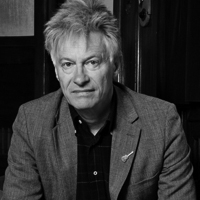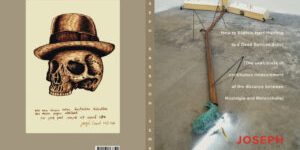Truth Or Dare? A Plea For Moderation
No comments yetPhilosophers who play the game ‘truth or dare’ are bound to recall the celebrated motto sapere aude (dare to know, dare to seek the truth) which Immanuel Kant used to capture the essence of the Enlightenment. In his famous essay from 1784, he called upon mankind to release itself from its self-inflicted immaturity in thoughtlessly accepting the authority of tradition and the tutelage of others, by wielding the force of critical reason. Self-emancipation through free public reasoning, however, required an act of personal courage, of daring to speak ‘truth to tradition’ and ‘truth to power’: of using knowledge, evidence, science and facts in challenging the powers that be.
But in our so-called post-truth society, Kant’s motto has been dramatically turned inside out, stood on its head, become perverse and cynical. The courage to speak out, to speak the truth, to break taboos, has become a major hallmark of a dominant anti-intellectual and populist Zeitgeist. Rightwing leaders such as Jörg Haider, Filip de Winter, Pim Fortuyn and Marine le Pen have all brandished the slogan: ‘We say what you think (but do not dare say)’. Mut zur Wahrheit is a poster tekst widely used by the Alternative für Deutschland. Donald Trump’s followers particularly like him because he dares to ‘speak his mind’.
According to this upside down version of the ‘courage of reason’, true speaking is transformed into a simple act of daring: of speaking without moderation, without thinking twice, as a raw expression of resentment, anger and frustration, and indulging in extremism, provocation, brutality and abuse. The courage of reason turnes into the courage of the bully.
Alt-right writer Milo Yiannopoulos explains: ‘Extreme ideas are permitted and even desirable. Anything goes. Rebellion, raising hell and incivility once again become acceptable in public life’. It is the by-now- familiar style of Breitbart, Fox News and Donald Trump, as pioneered in the Netherlands by GeenStijl, PowNews en De Dagelijkse Standaard. All of them seem to have adopted rule #1 of populist propaganda as formulated in Adolf Hitler’s Mein Kampf: ‘Be radical, proclaim your vision as the absolute truth’. A watered-down version of this was presented by Geert Wilders a few years ago in Milan: ‘Truth is not located somewhere in the middle. It is on our side, so you better get used to it’. Thierry Baudet, who describes himself as ‘one of the most brillant thinkers in the Netherlands’ adopts an equally peremptory tone: ‘My opinions are simply facts: I am right and the others are wrong’.
In this context of total politicization, values such as neutrality, objectivity and autonomy are devalued: facts do no longer exist, all that matters is emotion, partiality and political interest.
Whoever wins, is right. Truth is a product of succesful marketing. Winners create their own facts. Lies and ‘faking the news’ become legitimate political instruments in the hands of those who routinely accuse their opponents of the same. ‘Bullshitters’ like Trump view truth as a power game: they simply don’t care whether what they say is true or not. Their depreciation of fact-finding, independent research, and hence of experts and professionals, comes with an
elevation of the ‘People’ as the ultimate arbiter of wisdom, truth and justice. Vox populi vox dei. ‘Ordinary people know better’. Donald Trump says: ‘I love the uneducated’. In the populist idiom, People and Truth indeed become freely interchangeable terms: whoever speaks our truth we call ‘People’, and whoever disagrees with us is our enemy (the ‘Lügenpresse’, the elite etc.).
Now perhaps I will startle you by saying that I find the knee-jerk response to this populist perversion: which is to revert to the traditional Enlightenment conceptions of truth, objectivity and factuality, to be counterproductive and ineffective. In my view, these have been conclusively overhauled and discredited by the insights of postmodernist philosophy, constructivist sociology and anthropology, and the social studies of science and technology.
In some way or other, these disciplines have all followed up on Friedrich Nietzsche’s radical statement that ‘There are no facts, but only interpretations’. In this account, facts are not things that objectively exist ‘out there’ to provide a rockbottom of knowledge; they do not speak for themselves, but instead emerge as the product of collective constructions and hence require framings, contexts, theories, interpretations and values in order to ‘speak’ their meaning. Otherwise put: there are no facts without spokespersons. Claiming to stand on hard, ineluctable facts often comes down to playing a subtle power game, which is expected to create categorical imperatives. Expressions such as ‘it is a fact that’, ‘the facts of the matter say’ often function as simple enforcements of one’s own views.
But if facts are ‘mere’ constructions, and tend to follow the Pied Piper, it would appear that everyone is licensed to create his/her own ‘alternative facts’ and to adopt private realities.
Does the postmodern disenchantment of reason hence not come with a terrible risk: that of issuing in a tragic sell-out to the ‘fact-free’ politics of emotion, irationality and cynicism? In what way might populist politics and its cynical embrace of constructivist philosophy be seen as the bastard child of the postmodern critique of the Enlightenment?
Fortunately, there is a alternative way to escape from this tragic dilemma. If there is no going back to the objective certainties provided by Enlightenment rationalism; if facts (in spite of all fact-checking exercises) will remain essentially contested and contestable; and if traditional separations between truth and power, science and belief or facts and values do no longer hold, a different divide emerges, which invites different tasks which are more ethical and educational than epistemological in nature. Indeed, the most important distinction which now arises is that between absolutists and moderates (Max Weber would call them Gesinnungsethiker and Verantwortungsethiker): between those who claim to be always right and those who concede that truth is inevitably partial, incomplete and dependent on one’s perspective, and who therefore remain committed to critical inquiry, opposition and debate. In this latter view, the significance of facts is not so much that they provide a solid foundation of cognitive certainty, but that they offer building bricks for a common world of mutual trust: a reality we may come to agree about, that we can share. Those who simply elevate their opinions into facts are no longer interested in creating such a commonality.
If truth and reality are indeed products of social construction, a moral contrast arises between those who proclaim their construction to be the only thinkable and acceptable one, thereby creating division and enmity and tending towards aggression and violence, and those who remain committed to the construction of shared realities and social peace. While absolutists tend to ignore their opponents (who are seen as enemies, to be humiliated and destroyed) and avoid open and critical debate, moderates adopt a more relativizing (though not relativistic) attitude which admits and welcomes doubt, and which remains willing to subject all perspectives to critical scrutiny. If a God’s eye view of the world is out of reach, the solution is not to play God again and absolutize one’s own viewpoint, but to ‘accumulate different eyes’ (to cite another of Nietzsche’s sayings): i.e. to organize perspectival pluralism, to create and defend institutional checks and balances, to promote independent media and journalism, autonomous teaching and research, freedom of political opposition and democratic debate: everything that authoritarian populists are currently fighting against.
People may be classified according to many different criteria, subdividing into socio-economic classes, educational strata, age groups, gender divisions etc. etc. But arguably, one of the most enduring divisions is offered by something like the ‘social distribution of doubt’, which separates those who think they own the sovereign truth from those who are prepared to embrace a modicum of critical scepticism, who remain interested in taking the other’s point of view, and hence remain committed to create a common world of trust. Kant’s sapere aude had therefore better be retranslated as dubitare aude: dare to doubt, pluck up the courage to live with a little more uncertainty.
Dick Pels, sociologist, a freelance political writer and a singer-songwriter
You May Also Like
Comments
Leave a Reply






